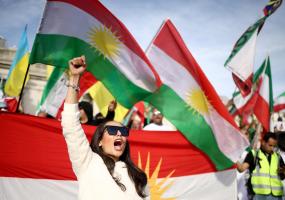Journalism in Vietnam: challenges and opportunities
25 Apr 2014
Stephen Whittle writes:Vietnam does not rate very high on the world press freedom index, just slightly above Syria but below Zimbabwe. However, it would be a mistake to judge Vietnamese journalists by that fact alone. Fortunately, the story does not end there. At two recent workshops in Hanoi and Ho Chi Minh City, some of Vietnam’s top investigative reporters talked about their work, shared their trade craft and engaged in some thoughtful debates about the nature of journalism. Their insights and aspirations would be familiar to journalists in countries that score much higher on the scale of freedom. They too are interested in how to achieve journalism that serves the public interest. That inevitably is difficult in what is still a very Communist society which struggles with the implications of the market economy. Direction and leadership and control continue to come down from the top while increasing numbers of Vietnamese are seeking to find their place and make their contribution outside the formal framework. The organiser of the seminars, Tran Le Thuy, a former Reuters Fellow who now directs the Centre for Media and Development Initiatives, was clear about the challenges and the opportunities: "Vietnamese journalists have overcome a lot of dangers and pressure to write investigative stories. However, investigative journalism in Vietnam is facing some fundamental challenges. It needs to be lifted to a higher level of professional skill to ensure fair, accurate and balance reporting and requires some changes in the legal environment such as the introduction of a public interest defence." Le Xuan Trung, the managing editor of Tuoi Tre, one of the most successful newspapers in the country, is very clear about the threats he faces. His analysis would echo what you can hear in any western newspaper office: the pressure of online competition, the issue of credibility and authority, a public that is suspicious of all establishments and asks who are journalists really working for, and, in the case of Vietnam, seeking to expose corruption in a society that finds such things difficult. He fears that there is a decline in the quality of journalists but also a lack of interest in both the profession and the public. It's the old tension between good and bad news. But the 88 year old editor of the Economic Times group, Dao Nguyen Cat, a true Vietnamese veteran, is clear that journalists have the right to investigate. He stressed the responsibility of editors to support it as part of a commitment to better governance. Certainly there was no shortage of examples to admire. Hoai Nam, ex-army now a journalist, plans his investigations like a military campaign and will spend months getting in place to be able to film police officers extracting bribes from truck drivers or farmers and traders interfering in food safety in order to make profit – ducks and chickens being forced to vomit to get to the right weight, coffee diluted by soya beans, and adulterated cooking oil. Other colleagues detailed their investigations into corrupt judges and prison officers, human trafficking, or the use of apparently dirty needles to extort money from fellow passengers on the bus. It was clear that journalism in Vietnam has some passionate, courageous and resourceful practitioners who think hard about the risks and the challenges. They have protocols in place that could have been written in the BBC around the need for integrity, accuracy and the avoidance of entrapment, and when and how to use secret recording. Nor are they afraid to take risks. Nguyen Thu Trang, is an extraordinary journalist who went undercover to follow Vietnamese Mafia bosses to an illegal casino in Vietnam where she managed to film them playing with $20,000 chips. She earned death threats for that. She is a committed journalist who is not afraid to go to the edge when reporting on issues of crime or child abuse. For her, it is about demonstrating "the conscience and responsibility of journalists towards their profession and society...for me it is my determination to get to the truth". That all of this can still happen within a much more structured environment, where bloggers have been imprisoned for what they have written online, and where the training of journalists is still very much the concern of the state, is a testament to the complexity of present day Vietnam. The head of journalism at the training Academy, Nguyen Van Dung, says that investigative journalism helps the state complete its policies in "cleaning up society from the abuse of power and other social evils." But that still means that Vietnamese journalists face the hurdle of providing evidence that will satisfy the authorities that action must be taken. That requires an understanding of the law and the limits of the possible. And making double sure you can’t be faulted for the way you carry out the investigation. They hope for changes in the law that will give greater protection and recognise formally the role of investigative journalism in serving the public interest. The Director of the Press Department of the Ministry of Information, Hoang Huu Luong, seems to be listening. He told the seminar that such journalism helped social development and needed support. And the Academy will be starting special courses soon.




